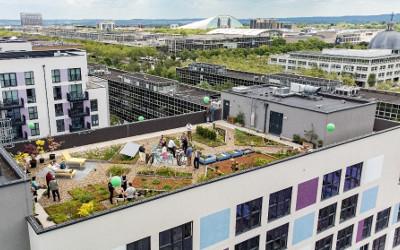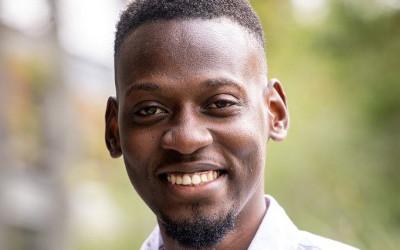You are here
- Home
- Living Roof project wins Open Societal Challenges funding for urban green roofing initiative
Living Roof project wins Open Societal Challenges funding for urban green roofing initiative

In a significant stride towards sustainable urban development, Bridgman & Bridgman LLP and The Open University (OU) have secured Open Societal Challenges (OSC) funding for their innovative project, the “Living Roof Live Lab.” The project, championed by the Milton Keynes-based green roof specialists Bridgman & Bridgman, aims to construct a state-of-the-art green roof research lab on OU’s Walton Hall campus. This initiative will contribute to crucial research on the ecological and urban benefits of green roofing technologies.
Environmental stewardship
The Living Roof Live Lab addresses the need for UK-specific data on green roofs, which has so far largely been sourced from Europe and beyond. Led by OU’s Dr Kadmiel Maseyk, an expert in environmental physiology and carbon cycle science, the project will provide insights into how green roofs can mitigate urban heat, reduce water runoff, enhance biodiversity, and improve energy efficiency in buildings. In addition, Dr Maseyk will work closely with OU’s estates and sustainability teams to integrate findings into the broader “Campus 2030” initiative, which aims to make OU’s campus a model of environmental stewardship.
The research platform will be located atop the Stuart Hall building on the OU’s Walton Hall campus in Milton Keynes, offering an accessible, large-scale experimental site. Designed for varied plant and substrate testing, the roof will feature distinct vegetation compositions, including resilient species such as Sedum and native grassland communities, as well as innovative substrates like recycled concrete and limestone chips. These materials will be tested for durability, water retention, and their ability to reduce local temperatures. By simulating diverse urban environments, the project will gather critical data on green roofs’ ability to counteract the urban heat island effect and promote climate resilience.
Chris Bridgman, founder of Bridgman & Bridgman and vice-chair of the Green Roof Organisation (GRO), highlights the significance of this research: “Our goal is to make green roofing more than just an aesthetic option; we want it to be a recognised urban necessity. This project will not only fill data gaps but will also provide a resource for advocacy, encouraging the integration of green roofs in UK infrastructure policy.”
Hands-on learning
Beyond ecological and infrastructural benefits, the project is designed to foster community and educational engagement. By connecting with the Open Living Lab and local environmental groups, the Living Roof Live Lab will offer citizens, students, and researchers opportunities to participate in hands-on learning about green technologies. Activities like citizen science projects, public workshops, and industry seminars will further integrate green roofing into the Milton Keynes community, supporting the city’s goal of becoming a global leader in sustainable urban planning.
A team of interdisciplinary experts will oversee various research components: Professor David Gowing, a grassland ecologist, will focus on plant selection and water management, while Dr Yoseph Araya, specializing in plant-soil interactions, will lead community outreach. Additionally, Dr Alice Fraser-McDonald, Sneha Ravji, and Caroline O’Rourke, emerging researchers with expertise in environmental monitoring, will support data collection and analysis, and contribute to developing innovative methodologies for assessing green roof performance.
With a timeline extending from construction in early 2025 to data dissemination in 2027, the Living Roof Live Lab promises to be a lasting asset for both research and policy. The OSC funding, supplemented by Bridgman & Bridgman’s in-kind support and industry partnerships, will cover essential costs such as structural assessments, advanced monitoring equipment, and specialized substrates.
As cities nationwide explore nature-based solutions to combat climate change, the Living Roof Live Lab sets a precedent. By providing policymakers, developers, and communities with UK-specific insights, this pioneering project could spur widespread adoption of green roofs, shaping a greener, more resilient urban landscape across the UK.
About Open Societal Challenges
The OU’s Open Societal Challenges programme aims to tackle some of the most important societal challenges of our time through impact-driven research.
The programme’s focus on the themes of Tackling Inequalities, Living Well and Sustainability align well with the OU’s mission to be open to people, places, methods and ideas.
The programme’s aim is to apply excellent research by OU academics to some of the most pressing challenges facing people across the UK and worldwide to transform lives and drive societal change.
Quarterly Review of Research
Read our Quarterly Review of Research to learn about our latest quality academic output.

Contact our news team
For all out of hours enquiries, please telephone +44 (0)7901 515891
Contact details